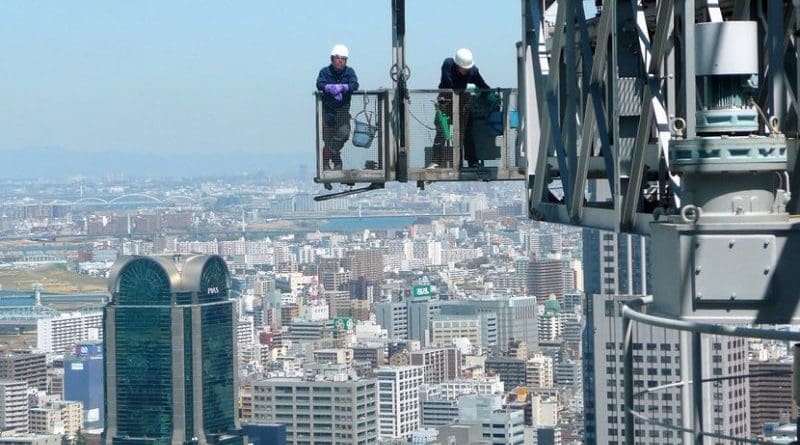Japan Setting A Good Example Ahead Of Olympics – OpEd
By Arab News
By Sinem Cengiz
Japan, the “Land of the Rising Sun,” is a very rich country in terms of culture, tradition, history and technology. This week, I had the opportunity to go to Tokyo, where I kept a laundry list of observations regarding its society and development. Needless to say, Tokyo takes its place in the Top 10 of my favorite cities in the world, with its unique attractions that keep one from feeling bored, from its old-school traditions to its modern, busy streets.
The first thing that grabs your attention is that Japanese people tend to be exceptionally orderly and neat, both in their work and their actions in society. When it comes to their attitude toward work, they are extremely dedicated and tend to do their job well, with politeness and a big smile on their face, while considering the job to be honorable. However, there is a common grievance among young people that the work-life balance is so disproportionate that overworking puts pressure on them. This leads to dissatisfaction in their social and private lives.
Despite their adaptation to the modern way of life, the Japanese are deeply attached to their traditions. It is clear that the country takes great efforts to build a modern nation that incorporates both its traditions and history and the adaptation of Western practices. One of the most important of these efforts is education, which is considered to be the foundation of the nation.
During my visits to Tokyo’s historical sites, I would often see secondary and primary students taken on a tour by their school. The Japanese want to keep the traditions and history of their nation alive by impressing them on pupils from a very young age. I remember a Japanese associate once saying to me: “You Turks have a lot of historical places that you should show to your younger generations. Though we lost many of our historical sites due to wars and natural devastation, we want to keep this nation alive.” Thus it seems education is regarded as having an important role in society in Japan. However, some say that the country faces a dilemma; that, while they are opening up to the world, they need to find a balance to ensure they preserve their cultural identity.
The other thing I particularly noted during this trip was that Tokyo is a remarkably safe place, even if it is rare to see police around the capital. There is a saying that Japanese people police themselves and I should agree with this. The country is also so strict with its rules that, except for designated areas in the city, smoking is forbidden, even in open-air spaces. Also one could easily realize that rubbish bins are scarce, but most sites and public spaces are clean. There is a basic custom of “take your rubbish home with you,” which somehow teaches people not to throw rubbish on to the streets.
My visit came a few weeks after the historic handover of Japan’s imperial throne to Emperor Naruhito, who took the Chrysanthemum Throne after his 85-year-old father Akihito became the first Japanese emperor to abdicate in more than 200 years. It took my attention that the new Empress Masako, Naruhito’s wife of 26 years, was not allowed to attend the ceremony, which many media outlets regarded as an illustration of the diminished status of women in the imperial family and of the challenges women face more broadly in Japanese society. It is hard to observe in such a short amount of time whether a country is male-centric or not. However, it is easy to notice that people in this country want a better future for their children and family. The main challenge seems to be the country’s low birth rate. According to a recent survey by the NHK Broadcasting Culture Research Institute, fewer people in Japan think marriage or having children is necessary. The results of the survey appear to be bad news for the government, which is trying to boost the birth rate.
In terms of development, I would say that Tokyo is very much prepared to be the host city for the 2020 Olympic and Paralympic Games. As a modern and developed country, Japan will be a good example as to how to handle the influx of foreign tourists and guests.
- Sinem Cengiz is a Turkish political analyst who specializes in Turkey’s relations with the Middle East. Twitter: @SinemCngz

